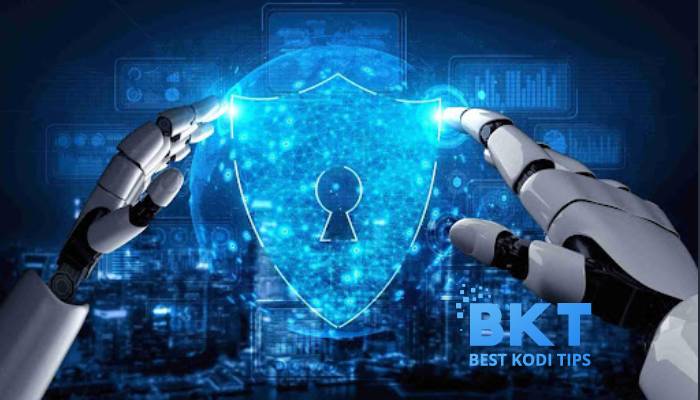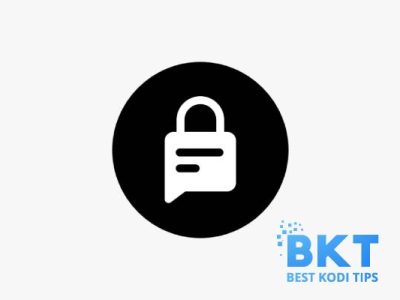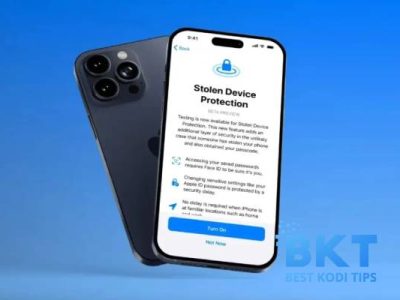Nowadays, we can see that online banking is rapidly expanding day by day. Maybe because of the Covid-19 pandemic, people are now switching to digital banking at a fast pace. According to recent statistics, around 1.9 people use online banking services worldwide.
Moreover, the estimated figure is that in 2024 it probably reach 2.5 billion users. Undoubtedly, online banking services have become standard for now; however, security concerns still have to be taken care of.
How Does Online Banking Works?
Usually, in the banking system, account holders have to visit the bank or ATM for money transactions. However, the online banking system functions to provide convenience to users to perform financial transactions through the web or mobile applications at home, office, or anywhere.
To do this, the account holders have to follow some steps. They need to do a few clicks to transfer funds, pay bills, or even connect bank accounts with payment applications like PayPal or Stripe.
How Can Online Banking Benefit Us?
One of the best benefits of using online banking is reducing fraud. As we all know, the number of scams has steadily increased in our daily lives, but most bank branches have converted to online banking systems to reduce fraud. It is a much safer and highly effective technique to use to stop fraud because, in online banking, money cannot be transferred without a chip card.
Many people in the world love to enjoy the benefits of online banking. One more advantage of using an online banking service is that you can easily see your bank balance, comfortably handle your account inquiries, and even transfer funds online. The most essential and enjoyable benefit is that now you don’t have to be worried about standing in a long line at bank branches.
However, the core benefits of using online banking that make it stand by are listed below:
- Individuals, New business startups, or large business can quickly and conveniently open their accounts online anytime at their ease. Online banking is a convenient way to conduct banking transactions.
- If you are using internet banking, you do not restrict your operations to banking hours. Instead, using an online banking service gives you a mental relief that you can pay anyone, anytime, anywhere in the world.
- On the other hand, all users will find the banking application interface easy to use. Furthermore, the entire transaction history is accessible online, so they no longer need to carry and store invoices and recipes.
- The system also made it easy and seamless for users to conduct transactional and non-transactional financial activities, such as paying bills and generating statements.
- The benefits of online banking also include instant notifications, 24/7 access, on-time loan payments, integration with other apps, and fraud alerts.
Potential Security Risks to Online Banking?
The biggest threats to online banking are scams. As the banks can’t confirm your real identity online, it is easier for hackers to hack and steal your account. Due to this, people lost nearly £160 million just because of using online banking and getting scammed in 2020.
Some of the top main security risks include:
- Identity fraud.
- Phishing.
- Man-in-the-middle attacks.
Identity Fraud
The Identify fraud is when someone uses your identity to gain access to your bank account. Once the hacker is in, they can change the password to kick you out or transfer your money somewhere else.
Phishing
Phishing is one of the frauds in which anyone impersonates your bank account. If you get a call or email from any person claiming that they are from a bank and ask for your password, it is a scam. Banks never ask for their customer’s details like Pin or passwords.
Man-in-the-middle Attacks
This type of security risk is when hackers intercept your network traffic. When you log in to your online bank account through the web or mobile applications, your browser sends your username and password to the server. If you are using an unsecured network, the hackers can easily steal your details by intercepting the traffic.
Real-life Example
The threat of online banking scams seems distant and theoretical until they happen to you. A scammer can target anyone, anytime, just by having excellent computer skills.
The fraudulent text message caused Jonathan Leakey to lose $25,000 in just a few minutes.
Thanks to a fraudulent text message, Jonathan Leakey lost £25,000 in the space of minutes. Even at your weakest, attackers can strike.
How to Maximize the Security of Online Banking?
1) Make Use of Unique and Strong Passwords
If your bank account is accessed from your data like birthdates, address, or loved one’s name, the security of your account could be compromised at any time. Similarly, security experts recommend avoiding common words, numbers, or letters in sequence, as well as short passwords, phrases, and phone numbers.
It has been consistently suggested to use long passwords and set passwords with a combination of numbers and capital letters. To avoid any security threats, you can use these kinds of passwords line “Sg476hdYgud47” or “68#GhsjruG857412“.
2) Use Two-factor Authentication
Two-factor authentication means using two different methods of checking who you are. Your bank account username and password are considered as one factor. For the second factor, the bank will forward you a passcode for verification either through a text message or from an authentic app like Google Authenticator. 2FA is much more secure than one-factor authentication because it clears out that you have both your bank account username and password. For hackers to impersonate you, they have to steal both of these.
3) Enable Banking Alerts
On the other hand, you should also enable banking notifications, emails, and alerts at all times. That way, you will be notified whenever there is suspicious activity.
Enhancing the security of online banking is not rocket science. You can keep your digital banking activities secure from cyber-attacks and other security threats by following the above tips.
4) Use a VPN
A Virtual Private Network (VPN) is a secure process for account holders to access the internet. It encrypts your network traffic and routes it through the VPN’s servers. In the event of a hacker breaking into your network, they would only be able to discover useless encrypted data. Since most VPNs employ the almost unbreakable 256-bit AES encryption standard, man-in-the-middle attacks are virtually impossible.
If you use public Wi-Fi or unsecured networks, VPNs are very useful for online banking. VPNs can even be used on your home network to provide enhanced security.
Final Words
To make online banking as safe and secure as possible, you should take various steps. You should first do not advertise how much money you have in your bank account or share passwords with others unnecessarily. Secondly, make sure you also take advantage of the security features available to you.















Comments